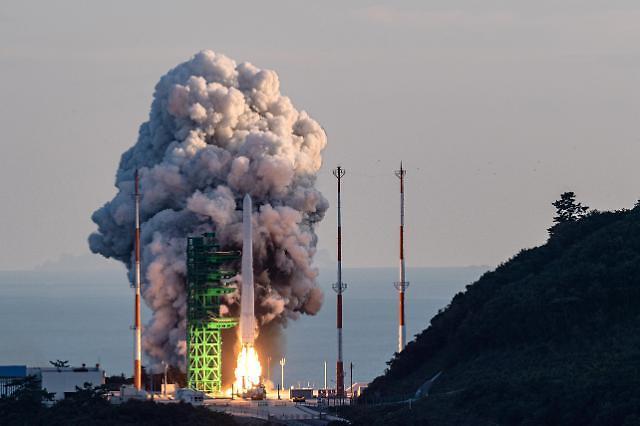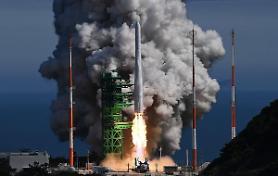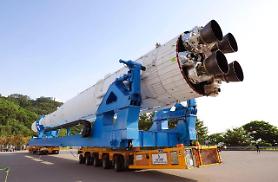
[Yonhap Photo]
South Korea is to launch a second medium-sized satellite weighing 500 kilograms for precise ground observation at the Baikonur launch site in Kazakhstan aboard a Russian Soyuz rocket sometime in the second half of 2022. In late 2022, KOMPSAT (Arirang) 6, an Earth observation satellite with high-resolution imaging radar, is to be launched aboard Russia's Angara rocket at a spaceport north of Moscow.
"The existing contract (with Russia) is in progress, but we cannot only look at (Russia), so we are looking for alternatives," Oh Tae-seok, 1st first vice minister at the Ministry of Science and ICT, told reporters on August 4.
"I think we should make a decision in September or October," Oh said, calling for a gradual and cautious approach because the termination of a contract with Russia to use space rockets made by other countries would cause "many issues" to solve.
South Korea's space rocket and missile development programs owe a lot to Russian technology. Three space rockets have been launched but two fired in 2009 and 2010 failed to reach the earth's targeted orbit. The third one using Russian technology put a satellite into orbit in 2013.
Finally, South Korea launched its homegrown space rocket that put satellites into target orbit in June 2022, becoming the seventh country in the world to have developed a space launch vehicle that can carry a more than one-ton satellite.
Technical cooperation with Russia served as a foundation for South Korea to launch its Space Pioneer" program aimed at creating a self-sustaining industrial ecosystem and cultivating innovative companies like Space X, a U.S. aerospace company. South Korean companies will be supported to build a supply chain using domestic parts as much as possible.
Russia has also played a pivotal role in South Korea's missile development.
Based mainly on Russian technology, South Korea has strived to develop an independent three-tier aerial and missile defense system. Because U.S companies are reluctant to transfer technology, South Korean developers have forged strategic partnerships with Russian firms.
In September 2021, the South's defense ministry disclosed plans to develop a strong ballistic missile with significantly increased destructive power, sparking speculation the new weapon would be an enhanced successor to the Hyunmoo-4 missile with a maximum range of 800 km and a warhead weight of two tons.
Copyright ⓒ Aju Press All rights reserved.

![[FOCUS] S. Koreas military proposes early deployment of dome-shaped air defense network](https://image.ajunews.com/content/image/2022/07/22/20220722154551165351_278_163.jpg)

